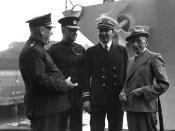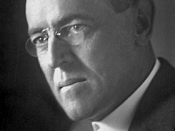Introduction:
Public administration has a long history. There are mainly three stages in the progress of public administration evolution, namely the early administration, the traditional model of administration and the new public management. In the past two decades there has been an unprecedented wave of reforms as the traditional model of public administration has come under attack. These reforms originated in developed industrial economies, whose political leaders were under pressure to keep down levels of public taxation and expenditure, while maintaining high levels of welfare and other public services (Manning 1996). A significant feature of the reforms was the belief that the state had become too large and over-committed, and that the market offered superior mechanisms for achieving the efficient supply of goods and services (World Bank, 1996, 1997).
The traditional model of public administration is based on the bureaucracy theory. It is characterized as "an administration under the formal control of the political leadership, based on a strictly hierarchical model of bureaucracy, staffed by permanent, neutral and anonymous officials, motivated only by the public interest, serving any governing party equally, and not contributing to policy but merely administrating those policies decided by the politicians."
The traditional model of administration was an improvement compared to the earlier one, which was regarded as the replacement of personal administration with an impersonal system based on rules. Indeed these were central concerns of philosophers such as Aristotle in ancient Greece, Confucius in ancient China, and Machiavelli in medieval Italy. But the conception of the activist, bureaucratic state, despite its earlier parallels, is in practice an essentially twentieth century phenomenon. The characteristics of this bureaucratic state were set out most clearly by the German sociologist Max Weber in 1920, with strong echoes of earlier writings by the American Woodrow Wilson (Hughes, 1998):
" There...


